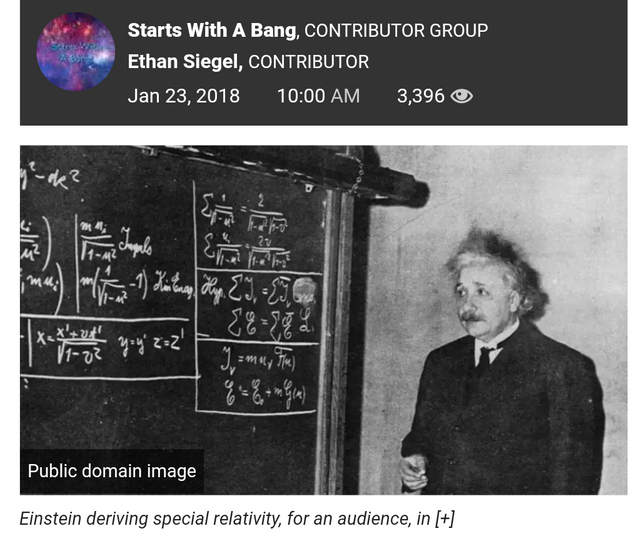The Three Meanings Of E=mc^2, Einstein's Most Famous Equation
For hundreds of years, there was an immutable law of physics that was never challenged: that in any reaction occurring in the Universe, mass was conserved. That no matter what you put in, what reacted, and what came out, the sum of what you began with and the sum of what you ended with would be equal. But under the laws of special relativity, mass simply couldn’t be the ultimate conserved quantity, since different observers would disagree about what the energy of a system was. Instead, Einstein was able to derive a law that we still use today, governed by one of the simplest but most powerful equations ever to be written down, E = mc2.
